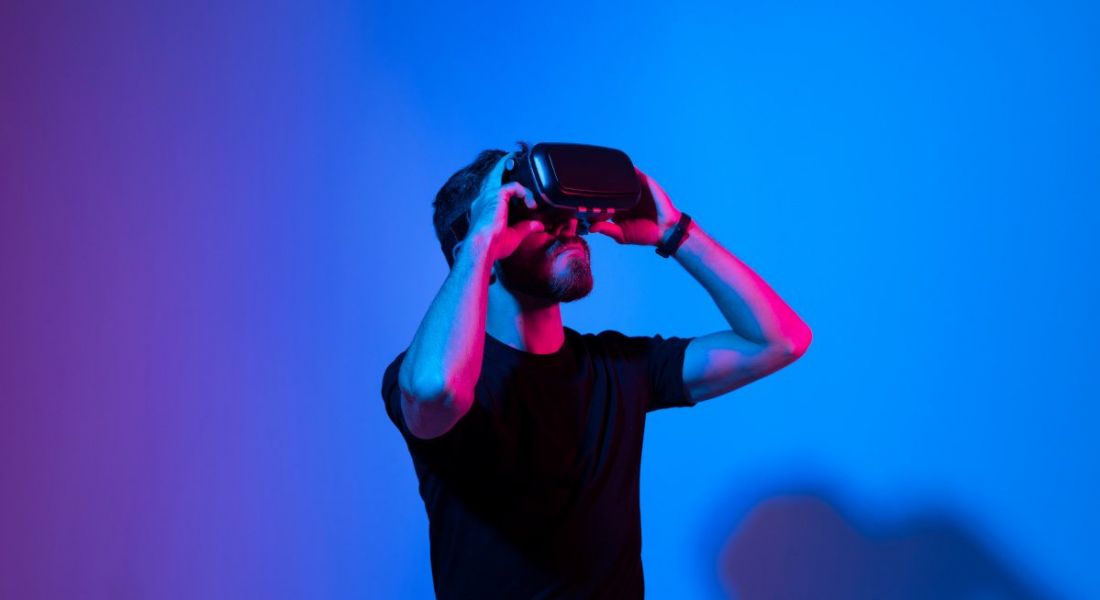Hays Technology’s Olivier Pacaud talks about the potential effect the metaverse and other technologies could have on recruitment.
Hays Technology recently announced that it has entered the metaverse. The increased adoption of the metaverse, where people can meet through avatars in private and public environments, is an exciting development in the way we communicate and has many useful applications.
Widespread uptake isn’t far away, either. The metaverse and its associated augmented realities are fast becoming popular – in fact, 2021 saw more Oculus VR headsets sold than Xbox consoles.
While the possibilities to enhance our gaming experience are obvious, the benefits can easily be applied to the world of work. Mark Zuckerberg, who is arguably the biggest driver of this technology through his company Meta, has already declared that: “In the future, working together will be one of the main ways people use the metaverse.”
It’s important that we explore the potential this has to change not only how we collaborate, but also recruit and train the workforce.
Finding jobs and recruiting in the metaverse
We used to advertise job openings locally with flyers in store windows and posts on job boards. In order to reach a wider talent pool, we shared roles through newspapers and telephone communication, and held recruitment fairs to meet candidates.
These channels have been superseded in the digital age as dedicated job sites and social media have become the most effective way for us to find and screen employees, and for jobseekers to share their profiles. We now touch base directly via direct message, email and even short video intros.
There are plenty of opportunities to replicate this recruitment strategy in the metaverse. It could be that digital job boards become popular hubs for jobseekers. Likewise, early examples of metaverse recruitment fairs show that there is potential, although there’s still work to be done.
Recruitment is evolving through other technologies
The metaverse is not the only technology that will have an impact on the way we recruit.
Candidates will be able to upload their CV to a blockchain. Since there is no option to retrospectively edit these entries, we could discover an applicant’s credentials through verified references from previous employers or educational institutions, which allows hiring parties to be certain of their skills and experience.
As for the screening, artificial intelligence models have the capability to do this to a higher standard than ever before.
Remote interviews are now commonplace and while there will always be a place for job interviews in the physical world, the metaverse is the next logical step. The environment naturally lends itself to interactive elements such as tasks or presentations.
There’s also the option for applicants to tour the office and meet potential colleagues, gaining a greater sense of everyday life at the organisation.
We can apply the same principles to onboarding with a new starter. In addition to inductions, it will also be easier to manage interactive learning remotely.
It’s worth developing a space that recreates the office environment since it will allow people to get to know each other at random in an organic way that can’t be replicated via scheduled video calls. Hyundai Mobis has already explored this, using the metaverse to introduce and train new employees.
Where can we expect to see this soon?
We must recognise that not all of these scenarios will be commonplace, but the technological advancements we’re seeing have genuine advantages. The metaverse definitely opens up opportunities for a global workforce and offers a practical platform for hiring without borders.
Unfortunately, some countries are currently unprepared for this situation and, looking ahead, we will need to see changes made to legislation on overseas hiring if we are to realise the technology’s full potential, whereby companies can easily find skilled candidates across the globe.
Given that the metaverse is being developed and promoted in the tech sphere, this will likely be the first industry to adopt this as part of its working world, particularly in entertainment where there is massive scope. Depending on how conducive it is to productivity, we will see further roll-out in other industries such as construction and even retail.
Before long, more and more software developers will specialise in building the metaverse. At first, they’ll probably be drawn in by the entertainment industry, but they will have a huge role to play in the future world of work too.
Olivier Pacaud is the head of recruitment in France and Luxembourg at Hays Technology. A version of this article originally appeared on the Hays Technology blog.
10 things you need to know direct to your inbox every weekday. Sign up for the Daily Brief, Silicon Republic’s digest of essential sci-tech news.




